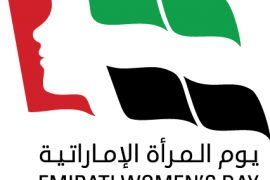By Ayesha AlMazroui (@AyeshaAlmazroui)
While the leadership of the UAE is committed to empowering women and reducing the gender gap, many young Emirati women are still dependent on their parents or husbands.
Young Emirati women make up to 47 percent of private universities’ graduates in the UAE. However, according to the Emirates News Agency, only 20.3 percent of the national workforce are females. Many young women stay at home after graduating from high school or college.
Asma AbdulMalik, 26, a country program officer at Dubai Cares, said that in her opinion, the main reason behind women’s dependence on husbands and parents “is the social, cultural, intellectual, and religious heritage of the UAE.”
She said that many Emirati women are still not comfortable to “go beyond the roles and responsibilities shaped and mandated by society and religion.”
Saif Al Suwaidi, the director general of the General Civil Aviation Authority (GCAA), suggested that the problem with overly dependent women is in the way many parents in the UAE raise their children.
“This has resulted from the dependency that we raised up our children upon, especially girls,” he said. “I think that our parents were more successful than us in raising us up (as independent adults.) We raised up our children in luxury and abundance that had a negative impact on their attitudes and behaviors.”
He also said that with the economic challenges that the country faces, the independence of women is not only acceptable, but also a necessity and a duty.
“Certainly, the UAE society is, like any oriental society, a male-dominated society,” he said. “But, we are witnessing a significant increase in the recent years in giving women greater opportunities.”
Maitha Salim, 23, an international affairs student at Zayed University, agreed that the UAE society is male-dominated. She said that while the world is moving toward equal-gender rights, some males from the young generation are still holding onto the old traditions.
“Many brothers still put restrictions on their sisters,” she said. “Sometimes parents accept that their daughters drive or work. However, they give their sons the authority to control their sisters.”
Iman Ustadi, 23, a chemical engineer, said that one of the main reasons for dependency is parenting style.
“Sometimes parents don’t distinguish between caring and teaching dependency,” she said. “Unfortunately, some parents see it as a way of taking care of their children and giving them their attention. Caring too much about children without limits turns to dependency that might be recognized later (when they grow up), or not.”
She said that this usually happens to girls.
“On the other hand, I see that boys reach a stage where they can take decisions and manage their lives even though they were raised up with dependency on their parents”
Hind Yousef, 26, a freelance journalist, said that some girls still look at work as a way to get money without thinking of some important benefits.
“What about ambition and self-actualization, serving the community, getting experience, gaining social skills and meeting different people?” she asked.
However, Ms. AbdulMalik said that female independence is growing in the UAE due to the national strategy and the realization of the vital role that women can play in the economic and social development of the nation.
“While government support is principal in providing opportunities for female independence, tackling existing cultural norms and perceptions is also central to the debate.”




